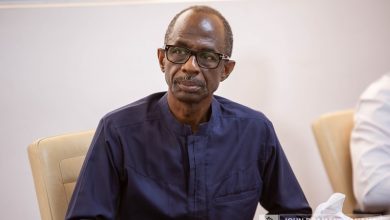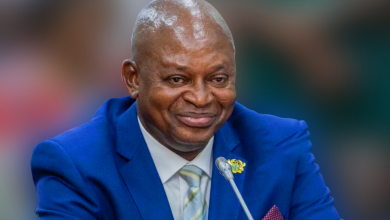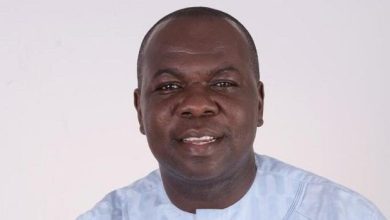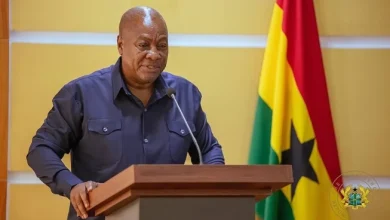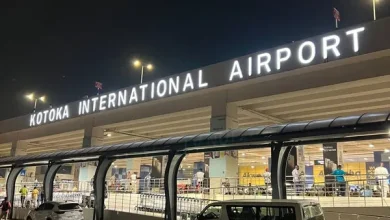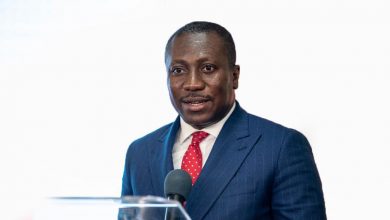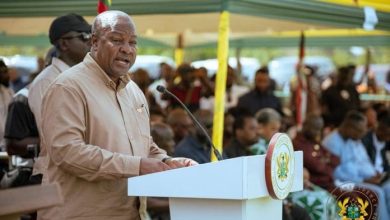Dr. Bawumia: “I’ll build a world-class digital economy to create jobs.”
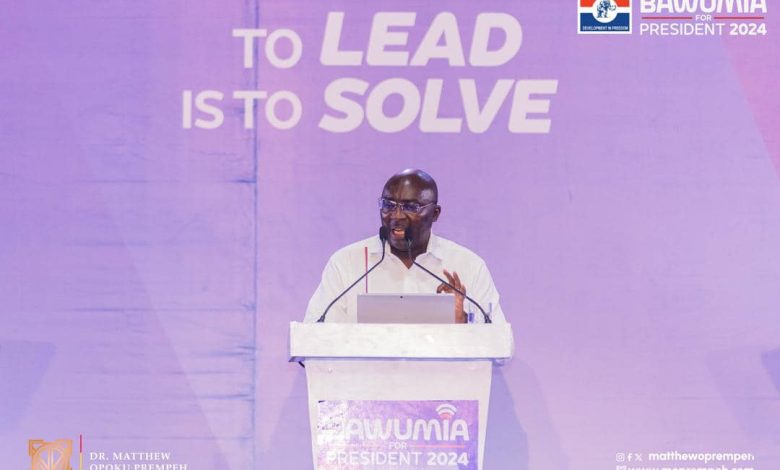
Dr. Mahamudu Bawumia, the flagbearer of the New Patriotic Party (NPP), has pledged to support his government’s efforts to create jobs for Ghanaians by constructing a world-class digital economy.
According to him, he wants to build a Ghana where the country will leverage technology, data and systems for inclusive economic growth in this regard.
“I want us to apply digital technology, STEM, robotics and artificial intelligence for the transformation of agriculture, healthcare, education, manufacturing, fintech and public service delivery. As part of this process it is my goal to eliminate the digital divide by achieving over 90% internet penetration. We have already made very significant progress in this direction by increasing internet penetration from 34% in 2016 to some 70% in 2023. The task in the next four years is to move from 70% to over 90% as exists in the advanced countries. It is possible,” he disclosed.
Addressing party supporters at Takoradi during the NPP Manifesto Launch, the NPP Flagbearer said he is determined not to let Ghana miss out on the Fourth Industrial Revolution as the country did on the Industrial Revolution some centuries back.
“I want to see Ghana build the digital talent we require for the Fourth Industrial Revolution. This will mean providing digital and software skills to hundreds of thousands of youth. This, along with other policies, will create jobs for the youth, including school dropouts,” he emphasised.
Dr. Bawumia said his government will collaborate with the private sector and train at least one million (1,000,000) youth in IT skills, including software developers, to provide job opportunities worldwide.
“Generally, there will be an enhanced focus on TVET education. My government will also support the establishment of a National Open University Ghana in collaboration with the private sector with a focus on ICT, TVET and STEM.To prepare our children for the Fourth Industrial Revolution workplace, I will enhance the positioning of the education system towards STEM, Robotics, Artificial Intelligence and vocational skills to cope with the demands of the fourth Industrial Revolution and job creation. My government will make coding and robotics standard in Senior High School,” the Vice President stressed.
He noted that for the country to become a digital hub in Africa, Ghana’s telecoms industry needs more investment and that the cost of data for the ordinary Ghanaian has become too expensive, and so his government is committed to working actively with industry players in setting clear policy guidelines that will remove any investor uncertainty and difficulties in business planning, including the expeditious allocation of spectrum, driven more by the goal of enhancing digital inclusion.
He said government will be working with educational institutions and leading Ghanaian and global tech firms to establish a National Robotics, Engineering, and AI Lab for research and training of young Ghanaians locally, providing venture funding and grant support for commercially viable tech projects by Ghanaian start-ups to drive innovation, foster high-tech entrepreneurship, create jobs, and support growth of Ghanaian high-tech businesses, providing “live lab” opportunities to Ghanaian tech start-ups under a Matchmaking Programme, by purposely connecting them to matured/large tech firms working on government tech projects, to help start-ups test their ideas in real-world environments, and to accelerate their product development cycle, working with the Bank of Ghana to significantly expand our Regulatory Sandbox to admit more Ghanaian Fintechs as well as regional Fintechs. This will position Ghana as a Multi-Regulatory/Multi-Jurisdictional Sandbox for financial and payments interoperability.
Additionally, his government will establish a Fintech Fund with a seed capital of US$100 Million to attract additional private sector funding to support Ghanaian start-ups developing payments and financial services solutions, specially focused on region-wide, exportable solutions, implement a Digital Residency (e-Residency) for businesses and individuals in tech firms, to register and operate from within Ghana, implement a 5-Year Digital Nomad Visa and Work Permit to attract global tech talents to domicile and work from Ghana, appoint a Digital Ambassador whose role will be to develop new external markets for Ghanaian digital talents and products, and facilitate the export of same as well as implementing comprehensive data interoperability across government platforms to enhance transparency and streamline services and Pushing further Ghana’s leadership role in achieving cross-border mobile money interoperability, among other payment systems, within the AfCFTA, to enhance buying and selling within Africa’s 1.4 billion consumer market.
The Vice President hinted his government will create a marketplace to streamline public sector procurement, abolish E-Levy, ensure that holders of the Ghana Card will not be required to fill out a separate form to apply for a passport, work with industry players to make more spectrum available to operators at affordable prices, including 5G, and eliminate import duties on mobile phones until manufacturing capacity is established in Ghana to enable many Ghanaians to affordably access mobile devices.


